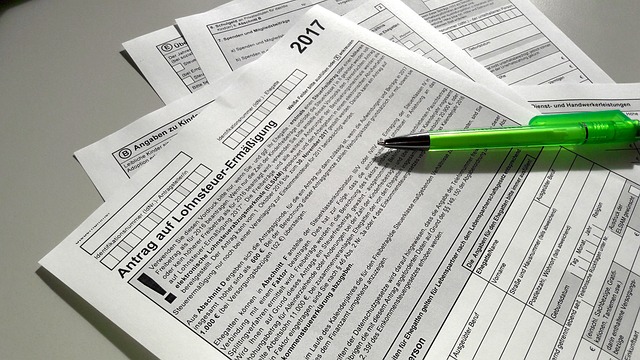Navigating complex UK corporate tax regulations requires accurate and legally compliant translations of financial documents. Professional services translate critical tax returns while adhering to stringent standards, avoiding penalties, and maintaining good standing with HMRC. Choosing a provider with deep tax terminology expertise, experience in handling similar documents, and robust data security protocols is crucial for seamless interactions with tax authorities worldwide. Engaging these experts ensures regulatory compliance, accuracy, and timely filing of Corporate Tax Returns UK.
In the intricate landscape of international business, navigating corporate tax returns in the UK requires meticulous attention to detail. This article guides you through ensuring regulatory compliance with translated corporate tax documents. From understanding the UK’s stringent regulatory requirements for corporate tax returns to leveraging accurate and legally sound translations, we explore key considerations when engaging top-tier translation services. Additionally, discover best practices to maintain compliance post-translation, offering a comprehensive roadmap for businesses aiming to smoothly navigate the UK’s tax documentation processes.
- Understanding Regulatory Requirements for Corporate Tax Returns in the UK
- The Role of Accurate and Legally Sound Translations in Tax Compliance
- Key Considerations when Engaging Translation Services for Tax Documentation
- Best Practices to Maintain Compliance After Translation: A Comprehensive Guide
Understanding Regulatory Requirements for Corporate Tax Returns in the UK

Navigating the complex landscape of corporate tax returns in the UK requires a deep understanding of regulatory requirements. Businesses operating within the UK, or those with international reach seeking to comply with UK tax laws, must ensure their financial documentation is not only accurate but also meticulously translated. The Corporate Tax Returns UK translation services play a pivotal role here, as they facilitate seamless communication between multilingual entities and HMRC (Her Majesty’s Revenue and Customs). This involves translating critical documents like financial statements, tax calculations, and corporate forms to meet the stringent standards set by the UK tax authority.
Regulatory compliance is not just about language barriers; it ensures transparency and accuracy in reporting. Professional translation services for corporate tax returns ensure that every detail, from tax rates to legal references, is conveyed precisely, minimizing the risk of errors or misunderstandings. This process is vital for businesses aiming to avoid penalties, maintain good standing with HMRC, and contribute to a robust, fair tax system in the UK.
The Role of Accurate and Legally Sound Translations in Tax Compliance

In the complex landscape of international business, accurate and legally sound translations play a pivotal role in ensuring regulatory compliance with corporate tax returns, especially in the UK. When companies operate across borders, they must navigate a labyrinthine web of tax regulations, each jurisdiction presenting its unique set of requirements and nuances. Professional translation services become indispensable tools in this process, enabling businesses to submit their corporate tax returns with confidence.
These specialized services go beyond mere word-for-word translations. They involve ensuring that financial terminology and concepts are conveyed accurately, preserving the integrity of the data while adhering to the legal and fiscal specifics of each country. This meticulous approach is crucial for avoiding errors, penalties, or even legal disputes that could arise from mistranslations in tax documentation. By relying on expert translators who understand both the language and tax laws, companies can streamline their compliance processes, fostering a harmonious relationship with tax authorities worldwide.
Key Considerations when Engaging Translation Services for Tax Documentation

When engaging translation services for corporate tax documentation, especially in the UK, several key considerations come into play to ensure regulatory compliance. The first and foremost is choosing a service provider with deep expertise in tax terminology and regulations across various languages. Corporate tax returns require precise translations that accurately convey complex financial information without any loss or distortion of meaning. Therefore, look for vendors who have experience handling similar documents and can demonstrate an understanding of the nuances involved.
Another critical aspect is maintaining data security and confidentiality. Tax documentation often contains sensitive financial details; thus, it’s essential to engage translation services that adhere to strict data protection protocols. Ensure they have robust security measures in place and comply with relevant data privacy regulations like GDPR. Additionally, clear communication channels and regular updates can help manage expectations and ensure the translated documents meet all necessary legal standards for Corporate Tax Returns in the UK.
Best Practices to Maintain Compliance After Translation: A Comprehensive Guide

Maintaining regulatory compliance with translated corporate tax documents is a critical yet often overlooked aspect of international business operations, especially in the UK. After all, accurate and timely filing is not just about meeting legal requirements; it’s also crucial for maintaining a company’s reputation and financial health. A comprehensive guide to best practices ensures that the process remains seamless and error-free.
Firstly, engage professional translation services specialising in corporate tax returns to guarantee accuracy and consistency across languages. These experts should possess not only strong linguistic skills but also a deep understanding of tax terminology and international regulations. Regular quality checks and back-translation can further ensure the reliability of the translated documents. Additionally, implementing robust internal processes for reviewing and verifying translations before submission is vital. This includes cross-referencing with original source documents, conducting peer reviews, and leveraging technology like translation memory tools to maintain consistency over time.
When navigating the intricate world of corporate tax returns in the UK, ensuring regulatory compliance through precise translations is paramount. By engaging reputable translation services that specialise in tax documentation, businesses can mitigate risks and avoid legal pitfalls. This comprehensive guide highlights the importance of accurate and legally sound translations, providing a strategic framework to maintain compliance even after the translation process is complete. Remember, in the realm of Corporate Tax Returns UK, every detail matters, and the right translation services can be a game-changer for your business’s success and longevity.
